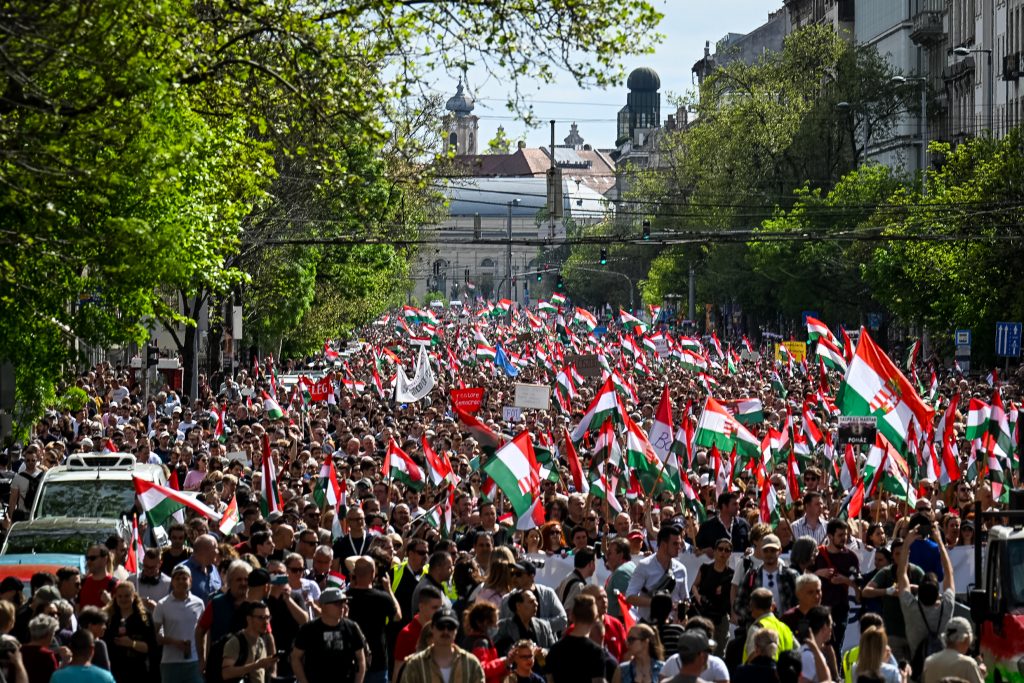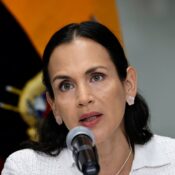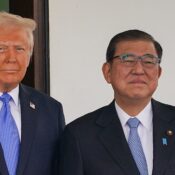
Thousands demonstrate in Hungary, calling for an end to “propaganda” by state media
On Saturday, thousands of Hungarians demonstrated in front of the national television station, demanding the establishment of an independent public service media and denouncing what they called the “propaganda machine” run by the government.
Opposition party TISZA protestors claim that the official channel MTVA is presenting biased propaganda that only includes politicians and analysts who support Prime Minister Viktor Orban’s party and administration.
Since Orban’s ascent to power in 2010, the right-wing nationalist is facing his greatest threat from the center-right TISZA party, headed by media-savvy political novice Peter Magyar.
At the most recent public gathering organized by Magyar, thousands of TISZA supporters gathered in Budapest, waving the national flag and carrying banners that said, “Stop Propaganda” and yelling, “We are not afraid” and “we’ve had enough”.
“Our patience has run out, we can no longer stand the hate, lies, and propaganda,” Magyar declared to the assembly.
“What we have as public service media in Hungary today is a global scandal, we have had enough.”
Magyar insisted on seeing the demonstration on public television in a “unedited” broadcast.
A study conducted last month by pollster Median revealed that 39% of respondents prefer TISZA, which stands for Tisztelet es Szabadsag (Respect and Freedom), while 43% backed Orban’s Fidesz party. Early in2026, there will be new elections.
At a time when the economy is only emerging from an inflation crisis, Magyar has promised to eradicate corruption, rebuild public service media, and restore democratic checks and balances—all of which critics claim Orban has undermined. By doing so, he is capitalizing on voters’ mounting dissatisfaction with the former prime minister.
The public media is essentially a spokesperson for the government, while partisans of Fidesz under Orban dominate much of the private media.
Press freedom is being undermined? The administration denies this.
According to Irene Khan, the Special Rapporteur of the United Nations on freedom of thought and expression, there exists “a distorted media environment in Hungary where pluralism, diversity, and independence of media are being questioned.”
All Categories
Recent Posts
Tags
+13162306000
zoneyetu@yahoo.com



